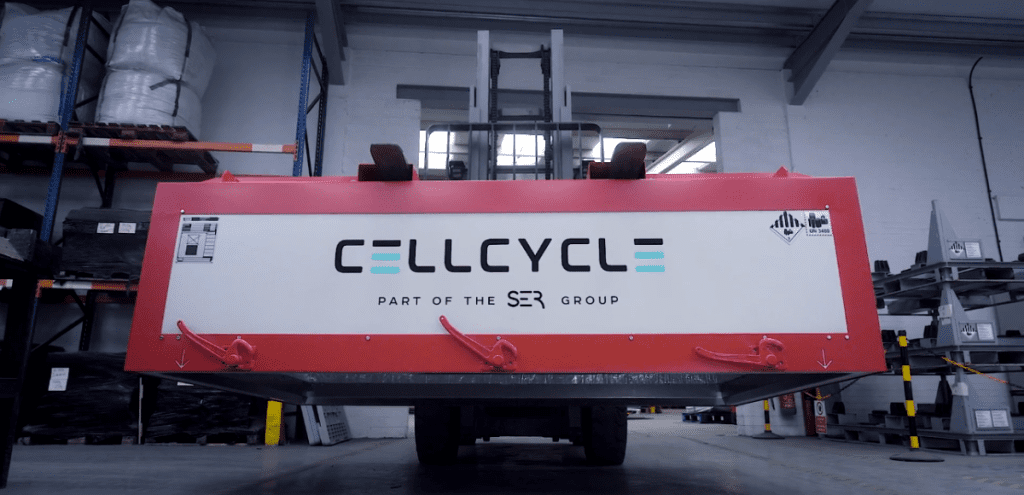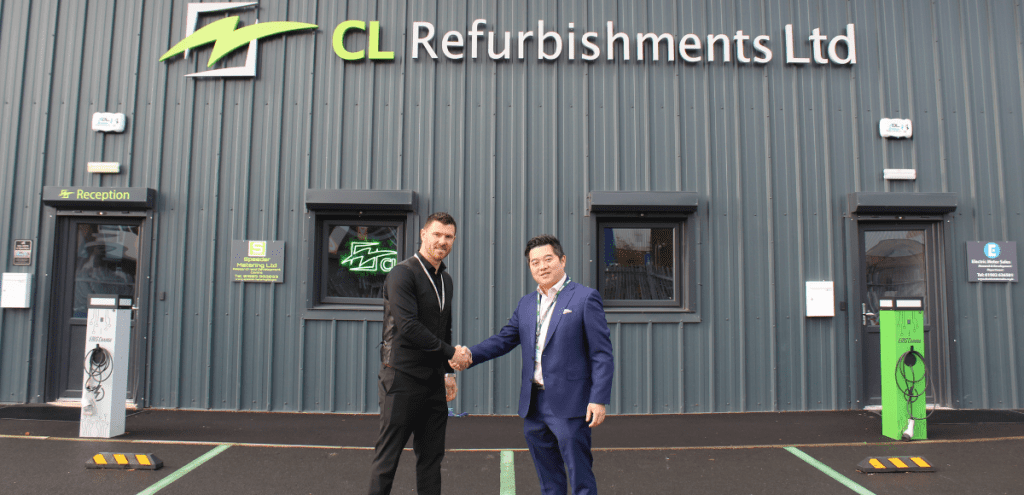Safe Recovery of Damaged & Defective ESS Lithium Batteries
CASE STUDY
Safe Recovery of Damaged & Defective ESS Lithium Batteries
Cellcycle successfully completed the decommissioning and removal of over 50 tonnes of lithium-ion battery modules from Battery Energy Storage Systems (BESS). This complex operation involved handling both safe and unsafe lithium-ion battery modules over a consecutive 12-day period.

Scope of Work
- Removal and recycling of over 50 tonnes of battery modules, consisting specifically of 20 tonnes of safe modules and 33 tonnes of critical (unsafe/damaged) battery modules.
- Detailed on-site inspection and comprehensive Risk Assessments and Method Statements (RAMS) by our expert high-voltage engineering team.
- Deployment of three ADR-approved battery containers for the secure transportation of 90 critical BESS modules.
- Utilisation of ADR-compliant vehicles and fully qualified ADR drivers for transporting hazardous materials.
Operational Execution
Initially, our engineers conducted an extensive site survey to identify specific handling requirements and assess risks associated with both safe and damaged battery modules. Rigorous inspections, testing, and evaluations were carried out to accurately determine the condition and safety classification of the modules involved.
Following the site survey and comprehensive planning, Cellcycle mobilised three ADR-approved Group 1 battery containers, supported by ADR-compliant transport vehicles and drivers. Over 12 consecutive working days, modules were systematically secured, loaded, and transported to our specialist recycling facility.
Throughout the decommissioning process, strict compliance with regulatory standards for hazardous materials transport was maintained, ensuring the safety of personnel and environmental protection.
Project Outcome
All modules were removed in a safe and timely manner, with no incidents or delays throughout the operation. The process strictly followed all regulations, including the use of UN-approved packaging and full compliance with ADR standards governing the transport of hazardous materials.
The project involved the coordinated handling of both safe and unsafe lithium-ion battery modules, requiring precise logistical planning and execution. This complexity was managed effectively, ensuring safety, compliance, and continuity from collection through to transport. All personnel involved were properly trained, and risk assessments were conducted to support a smooth and secure workflow across every stage of the operation.
Conclusion
The successful delivery of this project illustrates Cellcycle’s ability to plan and execute complex battery removal operations with high standards of safety, compliance, and operational rigour. Our experienced engineering and logistics teams ensured that the removal of both safe and unsafe lithium-ion batteries was carried out systematically, securely, and without incident. This project reinforces our operational readiness for large-scale battery decommissioning requirements across the energy storage sector.
Latest case studies
- Damaged Batteries Removal
- Services for BESS
- Sustainable supply chain
- Utility & Battery sector

